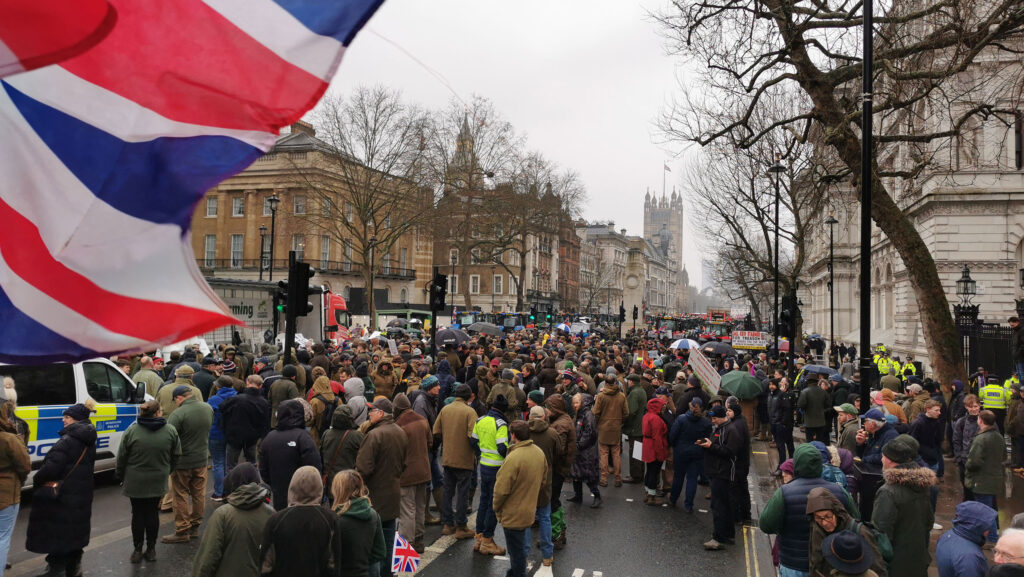Backbench Labour MPs push for adjustments to IHT relief
 © Phil Case/MAG
© Phil Case/MAG Labour politicians have largely resisted changes to inheritance tax (IHT) relief since the Autumn Budget, but on 10 February, several MPs voiced concerns and proposed potential adjustments.
The debate, which followed a petition with more than 150,000 signatures, centred on IHT changes for working farms. It coincided with a mass tractor rally outside Westminster protesting the government’s proposals.
David Smith, Labour MP for North Northumberland, suggested that raising the IHT threshold would provide “instant peace of mind” to family farmers.
See also: London rally: Farm leaders vow to continue IHT fight
He proposed that modest adjustments could alleviate pressure on family farms while still targeting land bankers, who are the focus of the policy.
Mr Smith urged the government to consider recalibrating the policy to close loopholes while supporting family farmers.
Labour MP Ben Goldsborough, who brought forward the motion, proposed alternatives such as a shortened taper rate for older farmers.
Under this suggestion, a farmer aged 70, for example, could have two to three years to transfer property with a 33% or 50% taper rate after one year. Mr Goldsborough said this solution would help farmers adjust their affairs more quickly under the new rules.
Other proposed solutions included introducing a clawback system, raising the threshold, and reviewing repayment policies.
Labour MP Julia Buckley called for a “temporary transitional extension” to the taper, allowing businesses more time to adjust.
Calls for Treasury modelling
Labour MP Chris Hinchcliff suggested that the Treasury should carry out further modelling on the policy, a call supported by Sam Rushforth, who argued that tweaking the policy could help it better achieve its goals.
The debate saw widespread calls for policy revisions across political lines.
Conservative MP Graham Stuart defended farmers, stating that they provide essential services to the nation at minimal profit. He criticised the government’s approach, labelling it “ridiculous” and “absurd” .
Liberal Democrat MP Alistair Carmichael argued that the government had miscalculated the number of farmers affected by the policy, suggesting that many more would be impacted than the Treasury had acknowledged.
He called for the policy to be paused and reconsidered, particularly highlighting the lack of attention given to tenant farmers.
SNP MP Dave Doogan condemned the policy as unjust, noting that the government had implemented it without prior warning or sufficient time for farmers to adjust.
Muted government response
The government’s response was tepid, with only Treasury minister James Murray attending the debate. No Defra ministers were present.
Mr Murray defended the policy as “fair” and insisted it provided significant IHT relief for small farms and businesses. However, he did not address the specific suggestions made by Labour MPs.
A UK government spokesperson reiterated its commitment to farmers, stating that reforms to agricultural and business property reliefs would result in a reduced IHT rate of 20% instead of the standard 40%.
This payment would be spread over 10 years, interest-free, affecting around 500 estates annually, added the spokesperson.
